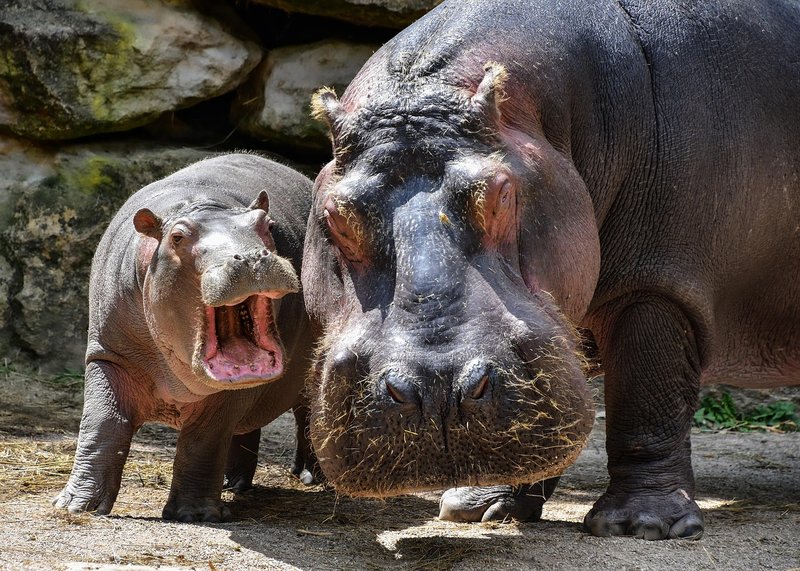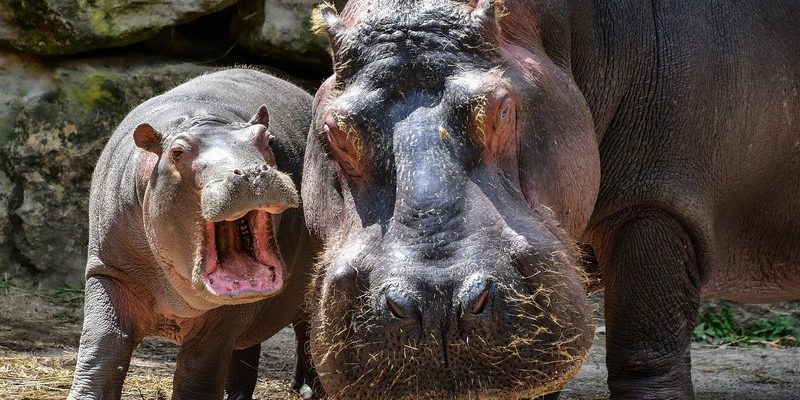
Just like the shifting tides that move through their habitats, the fate of hippos hangs in the balance. They are indeed considered vulnerable, and in some parts of their range, they’re even threatened or endangered. So why does this matter? Let’s dive deeper into the reasons behind this status, the challenges they face, and what conservation efforts are underway. You might be surprised to learn more about these fascinating creatures and what we can do to help secure their future.
What Makes Hippos Vulnerable?
Hippos seem like they have it made! They spend their days soaking in rivers, snacking on grass, and lounging in the sun. However, the reality is they face several threats that complicate their existence. One of the primary challenges for hippos is habitat loss. As human populations grow, more land is converted for agriculture and urban development, pushing hippos into smaller and smaller areas. Imagine trying to fit a large couch into a tiny apartment—not easy, right?
Another significant threat comes from poaching. Hippos are hunted for their meat and their ivory-like teeth. While it sounds hard to believe, their tusks are quite valuable on the black market, which makes them targets for illegal hunting. It’s not just the hippos being affected; the entire ecosystem suffers when one species is taken out of the equation. Every creature plays a role, much like pieces in a puzzle.
The Current Conservation Status
So, where do hippos stand on the endangered species scale? The International Union for Conservation of Nature (IUCN) classifies hippos as vulnerable, which means they’re at risk of becoming endangered unless circumstances improve. In certain regions of Africa, like parts of West Africa, hippos are declared endangered due to severe population declines.
To give you a clearer picture, here are some key statistics:
- Population estimates suggest that there are between 125,000 and 150,000 hippos left in the world.
- Some local populations are facing declines of up to 95% due to human activities.
This stark information highlights the urgency needed for conservation efforts. It’s not just about saving the hippos; it’s about preserving biodiversity and the health of entire ecosystems.
Why Hippos Matter to Our Ecosystems
Hippos might look like big, lazy river rocks, but they play a crucial role in their ecosystems. They help maintain the balance of their aquatic environments in many ways. For one, when hippos graze on grass, they effectively trim down vegetation within their habitat. This grazing helps to shape the landscape and promote fresh plant growth, which in turn benefits other animals.
Furthermore, hippo dung is considered a nutrient boost for the water systems they inhabit. This waste acts like fertilizer, supporting aquatic plants and the creatures that rely on them. So, think of hippos as nature’s gardeners, contributing to the health of rivers and lakes. When you take them out of the picture, you disrupt the entire system—like removing the engine from a car.
Conservation Efforts in Action
The good news is that many organizations and individuals are committed to protecting hippos and their habitats. Conservation initiatives focus on various strategies, including anti-poaching efforts, habitat restoration, and community engagement. It’s a multi-faceted approach, much like a team working together to score a goal in soccer.
One successful strategy has involved creating protected areas where hippos can thrive without constant human interference. These protected zones allow populations to recover naturally. Community-based programs are also vital; when local people understand the importance of hippos and benefit from their conservation, they are more likely to become advocates themselves.
Moreover, technology plays a role in conservation as well. GPS tracking collars on some hippos help researchers monitor their movements and assess their habitats. This technology provides valuable insights that can drive effective conservation strategies forward.
How You Can Help
You might be wondering, “What can I do to help the hippos?” There are several ways to make an impact, even if it feels like a small step. Here are a few simple actions you can consider:
- Educate Yourself and Others: Knowledge is power! Understanding the plight of hippos and sharing that information can raise awareness.
- Support Conservation Organizations: Find reputable organizations that work toward hippo conservation and consider donating or volunteering.
- Advocate for Sustainable Practices: Support local and global efforts to maintain sustainable land use and protect natural habitats.
Every effort counts. Even the smallest action can add up to significant change over time. Just like hippos affect their ecosystem, your efforts can contribute positively to the world around you.
Looking Ahead: The Future of Hippos
The journey for hippos isn’t over, and the fight for their survival requires ongoing dedication. The threats they face may seem daunting, but as more people become aware and involved, there’s hope for this magnificent creature. It’s all about taking action, fostering collaboration, and continually pushing for change.
If we can rally behind hippos and recognize their value in our ecosystems, we might just be able to steer their fate toward a brighter future. After all, every living being has a story to tell, and hippos are no exception. Let’s ensure their tale continues for generations to come.
In a world that often feels fast-paced and disconnected, remember the simple beauty of a hippo enjoying a sunny day by the water. By supporting conservation efforts, we can help keep these incredible creatures where they belong—part of our shared planet.

